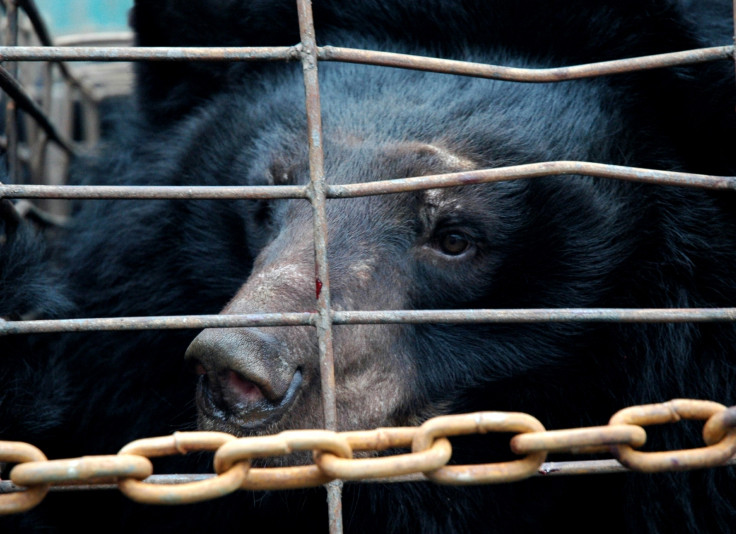Korean animal activists fight for closure of bear farms
Korean moon bears are on the line for slaughter with their bile being tapped as a proposed cure-all for coronavirus
Korean animal rights activists are appealing to South Korean president Moon Jae-in to save caged moon bears across the country from being farmed for medicinal purposes. This campaign has been once again put on the table this week as campaigners feel the ongoing coronavirus pandemic will most likely see these bears used as medicine by locals.
As of today, moon bears are currently trapped in cages in bear farms around South Korea. These furry creatures are waiting to be slaughtered and harvested for their parts to be used by many Koreans as alternative medicinal treatments. This has been a legalised practice in South Korea where the moon bears are killed for their bile. China and South Korea are the only countries which allow this and have brought the rapid decline of wild moon bears into an almost extinct level.
This tragic plight of the Korean moon bear now brings the focus to about 1,600 "domesticated " moon bears currently kept captive in farms that cater to a specific clientele that demand for bear bile as medicinal treatment. According to the International Aid for Korean Animals ( IAKA), bear bile is considered to be more expensive than gold in Korea and is said to be a cure-all for a variety of human ailments mostly concentrated on diseases of the liver and gallbladder.
In an effort to save the moon bears, the South Korean government imported moon bears and released them into a protected wildlife sanctuary at Jirisan National Park. However, this turned out to be unsuccessful due to the failure of the Ministry Environment to monitor and curtail poaching in the area as hundreds of bear traps have been found around the park. To date, there are currently only 20 moon bears surviving in Jirisan Park.
Although the Ministry of Environment has promised to restore the moon bear population in the sanctuary, they have nearly turned a blind eye to the heartbreaking state of the bears trapped in farms but seem to have more interest in protecting the interest of the 110 bear farms. The farms rarely undergo any form of inspection to enforce strict adherence to the codes of humanely caring for these animals and providing them with suitable facilities.
The worldwide trade of bear organs is said to be an industry boasting a net worth of $2 billion (£1.6 billion). A small packet of bear bile can fetch a price tag of up to $250 (£196) while an entire bear gallbladder can rack up as much as $20,000 (£15,750).

© Copyright IBTimes 2025. All rights reserved.





















